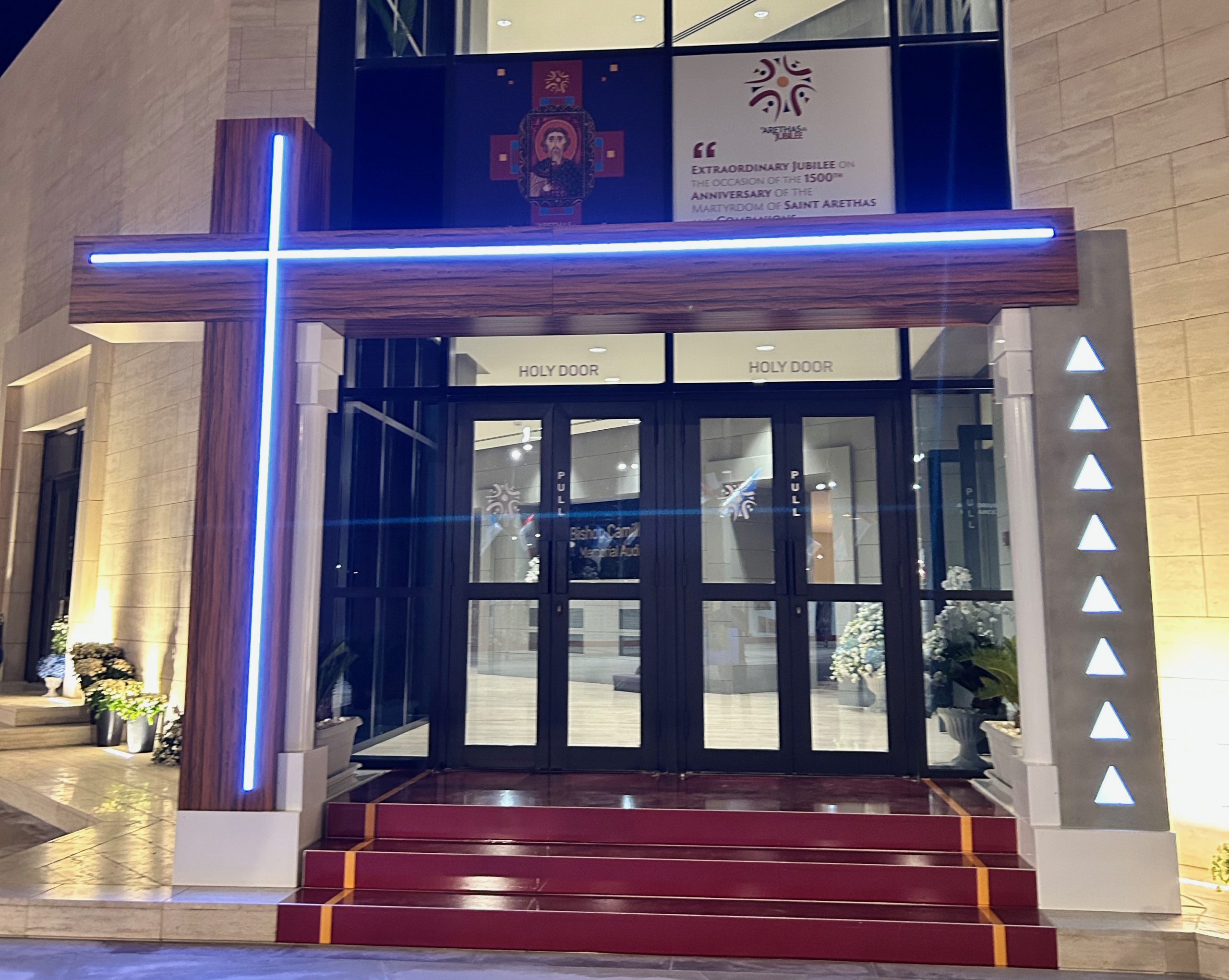When pilgrims walk through with pious intentions, they receive grace from God. Jesus gave the Church the power to dispense such graces freely: “Amen, I say to you, whatever you bind on earth shall be bound in heaven, and whatever you loose on earth shall be loosed in heaven” (Matthew 18:18).

The Holy Door marks that point of change on our spiritual journey from one environment to another. Courage is needed to walk through a door, not knowing what is on the other side. Our encounter with the Lord is a similar defining moment, a “door”, on our journey of faith. Jesus Himself is the Door, the only way to friendship with God, to holiness, and to eternal life. As Pope St. John Paul II wrote “To pass through that door means to confess that Jesus Christ is Lord; it is to strengthen faith in Him in order to live the new life which He has given us. It is a decision which presumes freedom to choose and also the courage to leave something behind, in the knowledge that what is gained is divine life.” — Incarnationis Mysterium
The custom of assigning Holy Doors dates back to the Middle Ages and is usually associated with churches in Rome. But popes have sometimes given the status of Holy Doors to churches far away. In the Year of Mercy (2016-2017), Pope Francis invited every diocese to designate entryways for this purpose.
To mark the 1500th anniversary of the martyrdom of St. Arethas and Companions, Holy Doors will be inaugurated at the cathedrals of Our Lady of Arabia and St. Joseph from 24th October 2023, and they will remain open throughout the year until 23rd October 2024. The faithful are invited to undertake a pilgrimage to the Holy Doors to be able to gain indulgences during the Jubilee, on satisfaction of the following conditions:
1. Attending Mass and receiving Holy Communion.
2. Going to sacramental confession.
3. Praying for the intentions of the Holy Father.
Those who are able to undertake a pilgrimage to Najran, the site of the saints’ martyrdom, will also be granted indulgences, on satisfaction of the same conditions as above.
The Catechism of the Catholic Church defines indulgence as:
A remission before God of the temporal punishment due to sins whose guilt has already been forgiven, which the faithful Christian who is duly disposed gains under certain prescribed conditions through the action of the Church which, as the minister of redemption, dispenses and applies with authority the treasury of the satisfactions of Christ and all of the saints.
To better grasp this rather technical definition, we need to understand that when a person commits sin, two things happen (among others):
1. Our relationship with God is broken.
2. Our soul is wounded, its good order is damaged.
The Sacrament of Penance or Confession restores our broken relationship with God, and therefore we are no longer separated from Him – a state of separation that would have meant to suffer the pains of hell (“eternal punishment”). However, God leaves the soul wounded even after confession – manifested by unhealthy attachments to earthly things, habits and human weaknesses – and it is up to us to heal these wounds caused by sin, through our good works throughout our lifetime. This is the “temporal punishment”.
Sometimes – or perhaps oftentimes – our good works are not good enough. That is why souls end up in Purgatory so that the purification process can be completed there before being admitted into Heaven.
God understands our situation, and so He directs the Church to assist us in restoring the perfect order of our souls. Therefore in addition to our good works, He orders the Church to make available during certain times like the Jubilee the use of the Treasury of the good works of Christ, the Virgin Mary and the Saints, to cancel or reduce the temporal punishments. This is Indulgence, of which there are two degrees: Partial Indulgence when the temporal punishments are only reduced; and Plenary Indulgence when all punishments are canceled or remitted.
Indulgence may be applied to oneself or offered to the souls in Purgatory. Note however that indulgences only remove the punishment of sin; they do not forgive the sins themselves.
Download your own copies:
